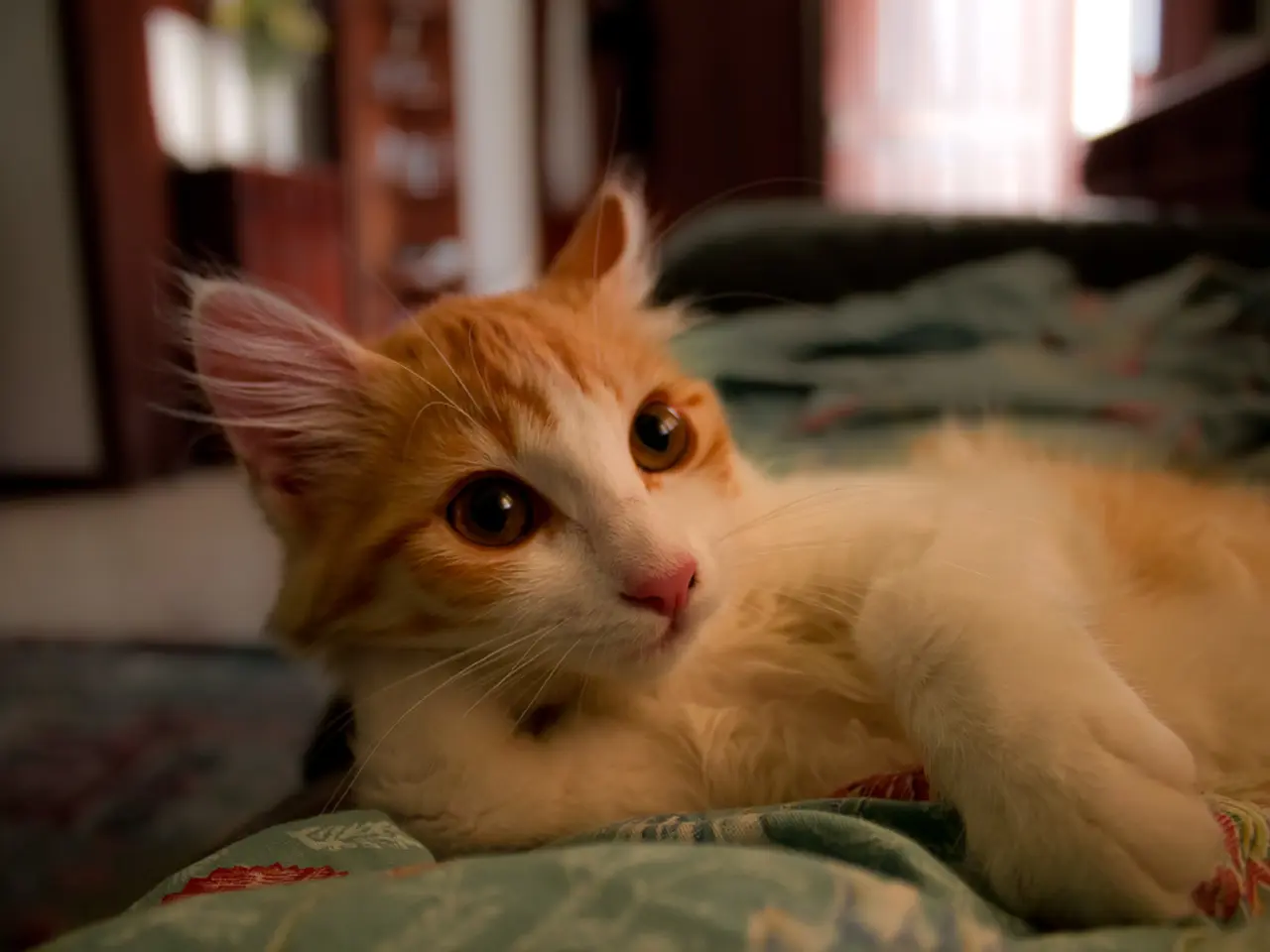Feline Urine Issues: An Investigation on Why Your Cat Is Marking Beyond the Litter Box
Cats, known for their fastidious nature, often exhibit signs of discomfort when their litter boxes are unclean, the litter type is unfamiliar, or the box is placed in an inconvenient location. However, there are other reasons why a cat might pee outside the litter box, including medical causes and behavioural issues.
Litter Box Problems
Cats, by nature, prefer a clean environment. Litter boxes should be scooped daily and cleaned regularly to encourage use. Cats often prefer clumping, unscented litter with a fine to medium texture. A sudden change in litter may cause avoidance. The litter depth should be limited to a couple of inches, and the box should be placed in a quiet, low-traffic, easily accessible area where the cat can feel safe and have options to escape if startled. Covered or high-sided boxes may be intimidating, especially for cats with mobility issues, and providing one box per cat plus an extra box can help avoid territorial conflicts or resource guarding behaviours.
Medical Causes
Urinary tract infections (UTIs) and other urinary tract diseases can cause cats to avoid the litter box due to pain or discomfort. Older cats may find it painful to enter certain boxes due to arthritis or other mobility issues. Various systemic illnesses, such as kidney disease, diabetes, cancer, and thyroid issues, can alter urination habits. Cats with decreased vision or blindness may find it harder to locate or feel comfortable in the box, while spondylosis deformans and muscle atrophy can physically inhibit proper litter box use.
Behavioural Issues
New pets, household changes, or even a sudden stressor can cause litter box avoidance. Cats might prevent other cats from accessing the litter box through aggression or blocking, leading to accidents. Cats dislike change and prefer consistency, so a fear of new litter box or litter changes can also contribute to inappropriate urination. Territorial conflict or anxiety can lead to inappropriate urination outside the box.
Solutions
The first step to addressing inappropriate urination is a veterinary check-up to rule out medical problems. Improving the litter box setup is crucial, keeping boxes clean and fresh, using the preferred litter type, and keeping depth moderate. Placing boxes in quiet, accessible locations, providing enough boxes for all cats, and using low-sided boxes for senior or arthritic cats can help. Addressing behavioural stressors by maintaining routines, reducing environmental stress, and using pheromone sprays to calm cats can also be beneficial. It's important to avoid punishment, as accidents are a symptom, not defiance. Cleaning accidents properly with pet-safe enzymatic cleaners can help neutralize odours, and positive reinforcement, such as treats or praise, can encourage correct litter box use.
In summary, cats pee outside the litter box due to a combination of medical conditions, environmental or litter box dissatisfaction, and behavioural stress or conflicts. Understanding and addressing these aspects with patience and proper care usually resolves the issue. If a cat's urine has a strong or unusual smell, or if the cat is peeing frequently or showing signs of pain, it is advisable to consult a vet. Separation anxiety or environmental factors like loud noises or unfamiliar scents can also contribute to inappropriate urination. Behavioural issues, such as anxiety, territorial marking, or changes in the cat's environment, can cause inappropriate urination. Shifts in household dynamics can trigger behavioural issues in sensitive or anxious cats. To reduce stress, provide regular play sessions, stable routines, and plenty of hiding spots. Many medical issues can be life-threatening if ignored, and behavioural problems often improve with the right guidance and care. Health problems can cause changes in a cat's behaviour, including inappropriate urination. Urinary tract infections, bladder stones, and kidney disease can lead to more frequent urination or urinating in unusual places. If your cat is peeing everywhere and you can't identify the cause, seek professional help. Many cat owners seek professional help due to inappropriate urination by their cats. Intact (unneutered) male cats are more likely to engage in territorial marking, especially if other cats are around. Having enough litter boxes (one per cat plus one extra) is important. To prevent inappropriate urination, keep the litter box clean, experiment with different types of cat litter and box styles, and avoid placing the litter box near loud appliances or in high-traffic areas. Anxious cats may react to a new pet, a loud noise, or a missing family member. In multi-cat households, ensure each cat feels safe and has access to their own space and litter box. Cats have individual preferences regarding litter type, box location, and cleanliness.
- To maintain a content cat, it's essential to use technology, such as pet-safe enzymatic cleaners, to eliminate odors from accidents and keep the litter box environment clean and fresh.
- Science plays a crucial role in understanding cats' preferences for clumping, unscented litter with a fine to medium texture, which contributes to the overall health-and-wellness of the feline.
- The lifestyle of a cat can be significantly impacted by factors such as the placement of the litter box in a quiet, low-traffic, easily accessible area, promoting a sense of safety and comfort in the pet's environment.




